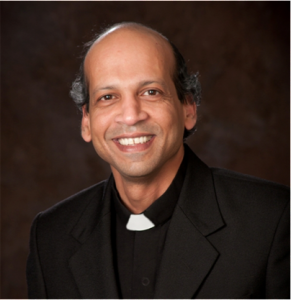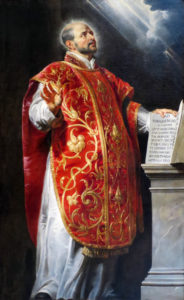 Born Agnes Gonxha Bojaxhiu in 1910 to an ethnic Albanian family in Skopje, in what is now part of Macedonia, Mother Teresa went to India as a Sister of Loreto in 1929. Receiving what she described as a “call within a call,” she began her missionary work with the poor and laid the foundation for what would become the Missionaries of Charity.
Born Agnes Gonxha Bojaxhiu in 1910 to an ethnic Albanian family in Skopje, in what is now part of Macedonia, Mother Teresa went to India as a Sister of Loreto in 1929. Receiving what she described as a “call within a call,” she began her missionary work with the poor and laid the foundation for what would become the Missionaries of Charity.Known as the “saint of the gutters,” Mother Teresa was revered for ministering to the sick and the dying in some of the world’s poorest neighborhoods. Following her death in 1997, St. John Paul II waived the usual five-year waiting period and allowed the opening of the process to declare her sainthood. She was beatified in 2003.
The date of Mother Teresa’s canonization will coincide with the conclusion of the Year of Mercy pilgrimage for workers and ministers engaged in works of mercy.
Copyright (c) 2016 Catholic News Service.
Reprinted with permission from CNS.
www.catholicnews.com
Archbishop Vigneron will say Mass for the Canonization of St. Teresa of Calcutta today, September 4th at 11 am at the Cathedral of the Most Blessed Sacrament in Detroit.
Mass of Anointing—September 24th
St. Valentine parish is offering an opportunity to receive the “Sacrament of Anointing” during our regular 5:00pm Mass on Saturday – September 24th.
This is a sacrament appropriate for anyone whose health is seriously impaired by sickness, advanced age, or the danger of death. It should be considered by people who are seriously ill, whether at home, in hospitals or in nursing homes; seriously sick children who are old enough to experience the sacramental benefits; individuals about to undergo surgery when a serious illness is the reason for the having the surgery; elderly people, suffering the maladies of old age; and all individuals who are chronically ill or permanently disabled.
So, if you see yourself, or a family member, in any of the descriptions above, we encourage you to attend this Mass. All you need do is:
CALL THE PARISH OFFICE AT (313) 532-4394 TO REGISTER YOUR NAME NO LATER THEN WEDNESDAY, SEPTEMBER 21st.
Remember, part of God’s plan for each of us is that we should fight strenuously against all sickness and carefully seek the blessings of good health. This special Mass, with the Sacrament of Anointing, provides an opportunity to do just that.


